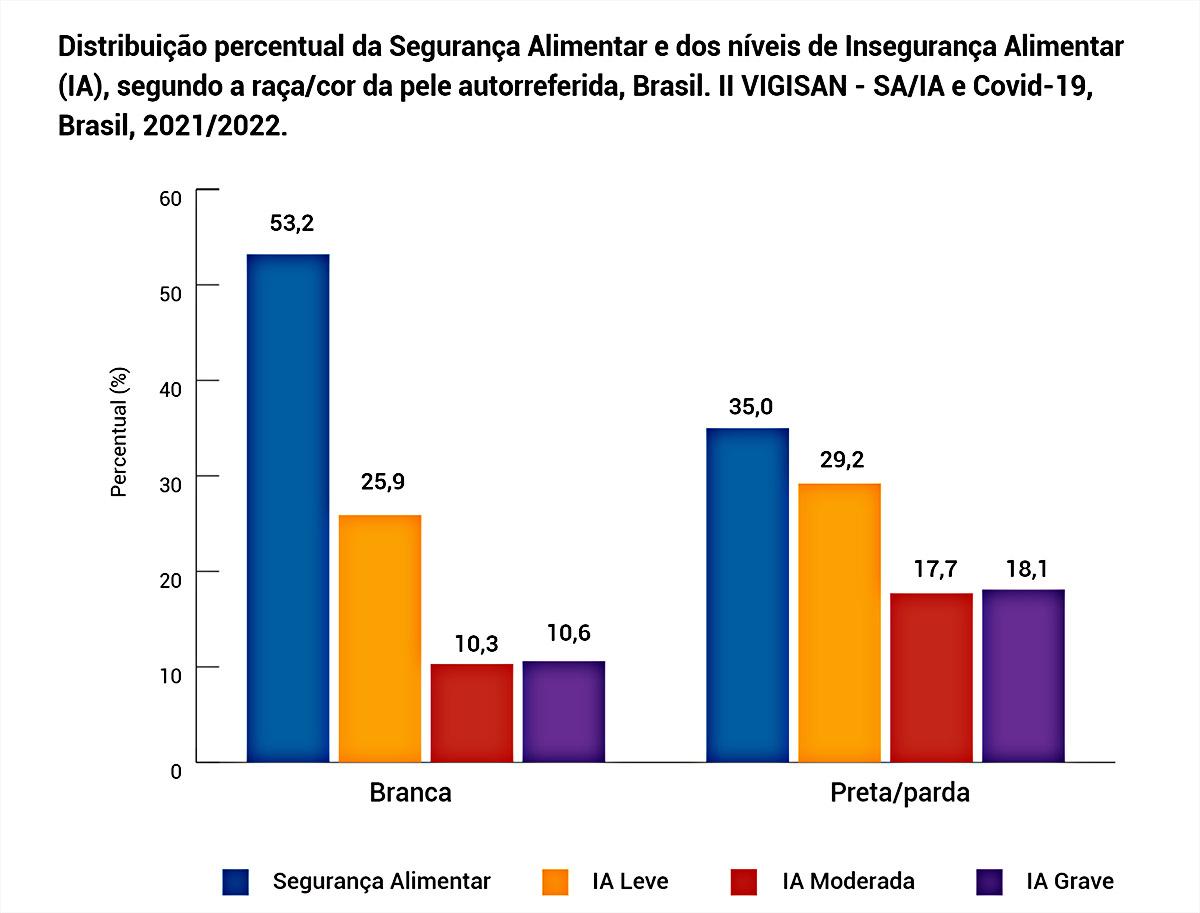(8) The 2nd National Survey on Food Insecurity in the Context of the Covid-19 Pandemic in Brazil, released Wednesday, reveals alarming data about the country’s social reality regarding the food security of the population. Among the most relevant data are: In 2022, hunger affects 33.1 million Brazilian citizens.
The current edition of the study was developed by the Brazilian Sovereignty and Food Security Research Network (PENSSAN) based on interviews conducted in 12,745 households between November 2021 and April 2022. Urban and rural areas of 577 municipalities in all 26 states of Brazil and the Federal District were visited.
Using the measurements of the Brazilian Food Insecurity Scale (Ebia), the same as that used by the Brazilian Institute of Geography and Statistics (IBGE), the new edition of the “Survey” reveals: More than half of Brazil’s population (58.7%) lives with some degree of food insecuritymild, moderate or severe (hunger). The country as a whole has regressed to 1990s levels.
food security is falling
This year, only four out of ten Brazilian homes have full access to food. This means that 60% of Brazilian households are divided between those who have some degree of concern about the possibility of not finding food in the future, and those who are already starving. In absolute numbers, there are 124.2 million people.
Hunger is higher in the North and Northeast
Hunger is now part of the daily life of 25.7% of families in the North of Brazil and 21% in the Northeast. In addition, food insecurity percentages – 71.6% in the North and 68% in the Northeast – are above the national average of 58.7%.
Whoever produces food is starving
When rural and urban are compared, it is seen that more than 60% of the households have food insecurity and 18.6% of these families experience hunger. In this scenario, hunger is present even among food producers, affecting 21.8% of households of family farmers and small producers.
Hunger has color and gender

The second survey proves two cases of inequality. Regarding skin colour, 65% of households led by persons declaring black or brown have dietary restrictions. When the gender of those responsible for the care of the houses are examined, hunger is observed in 19.3% of cases headed by women and 11.9% of cases by men.
It is concluded that the decline in food security in Brazil, the continued removal of public policies to combat hunger, the worsening of the economic crisis, the increase in social inequalities and the second year of the covid-19 pandemic are responsible.
Source: Tec Mundo
I am Bret Jackson, a professional journalist and author for Gadget Onus, where I specialize in writing about the gaming industry. With over 6 years of experience in my field, I have built up an extensive portfolio that ranges from reviews to interviews with top figures within the industry. My work has been featured on various news sites, providing readers with insightful analysis regarding the current state of gaming culture.












